
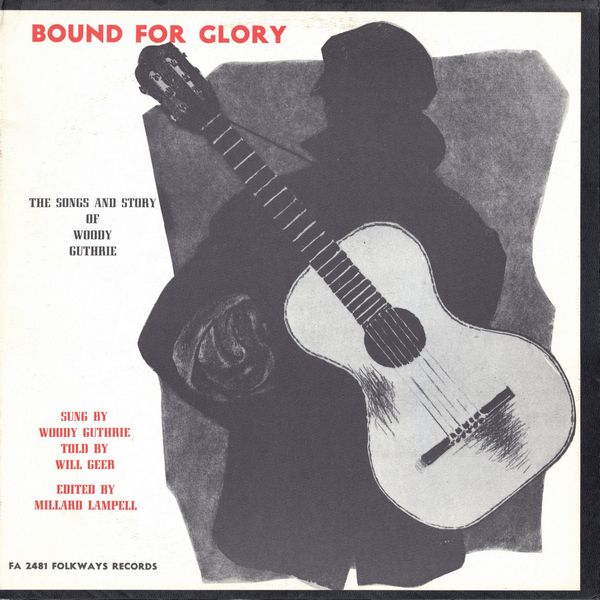 |
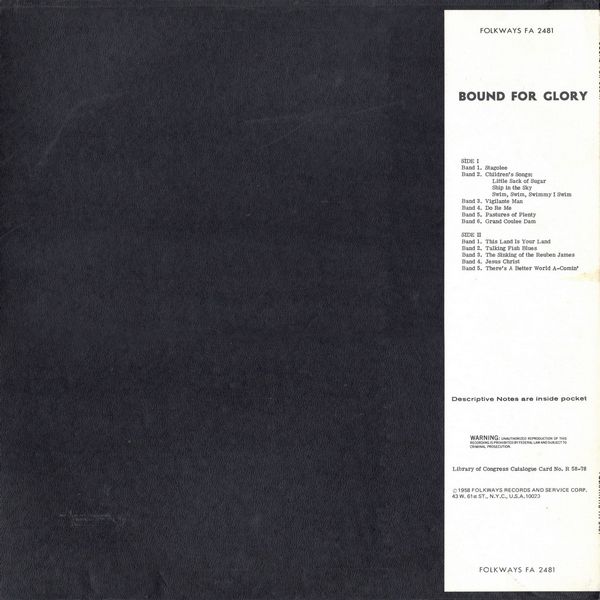
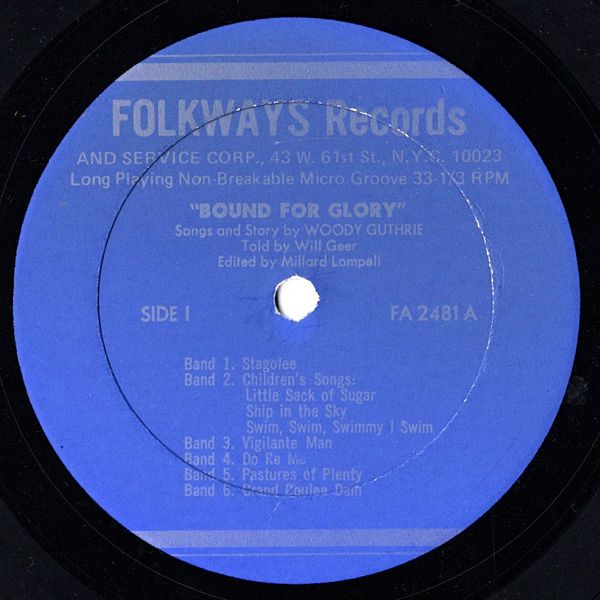
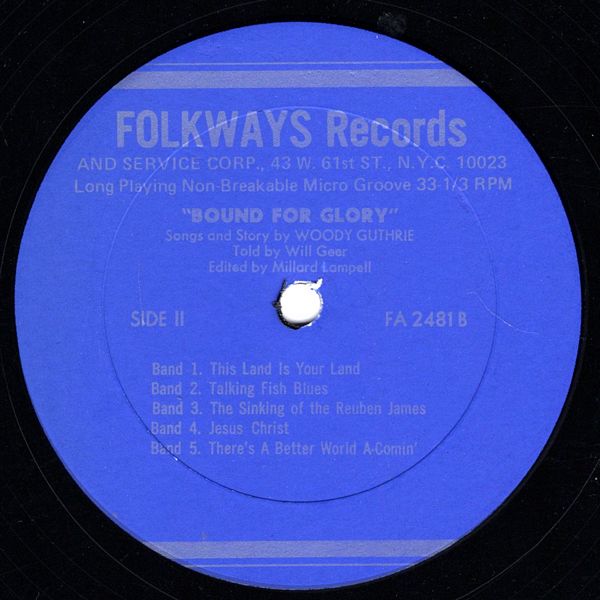
|
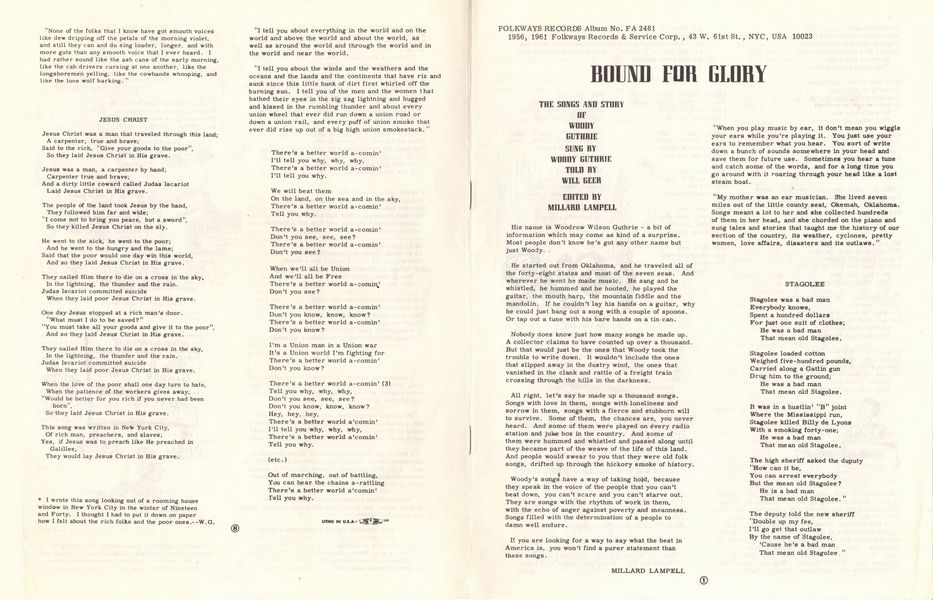
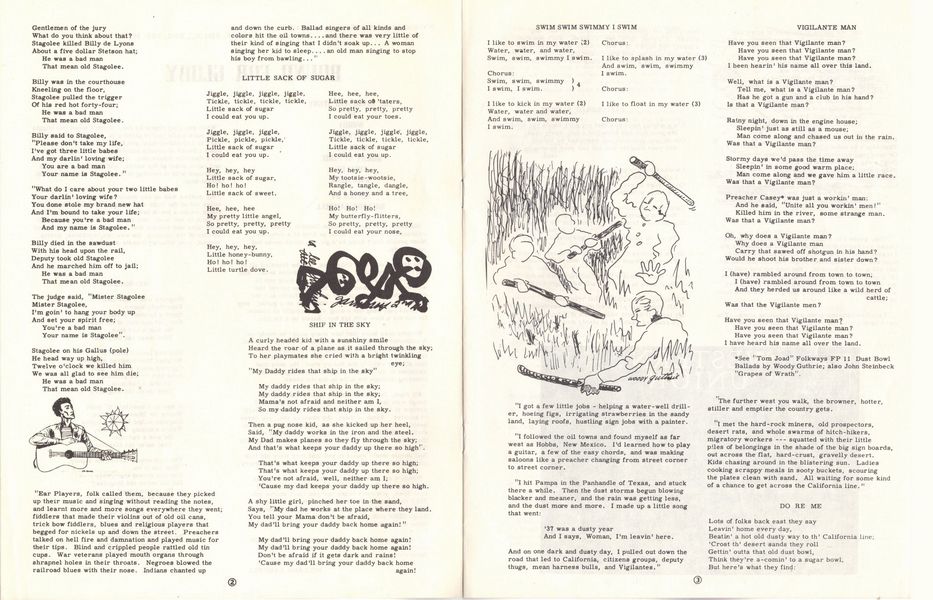
|
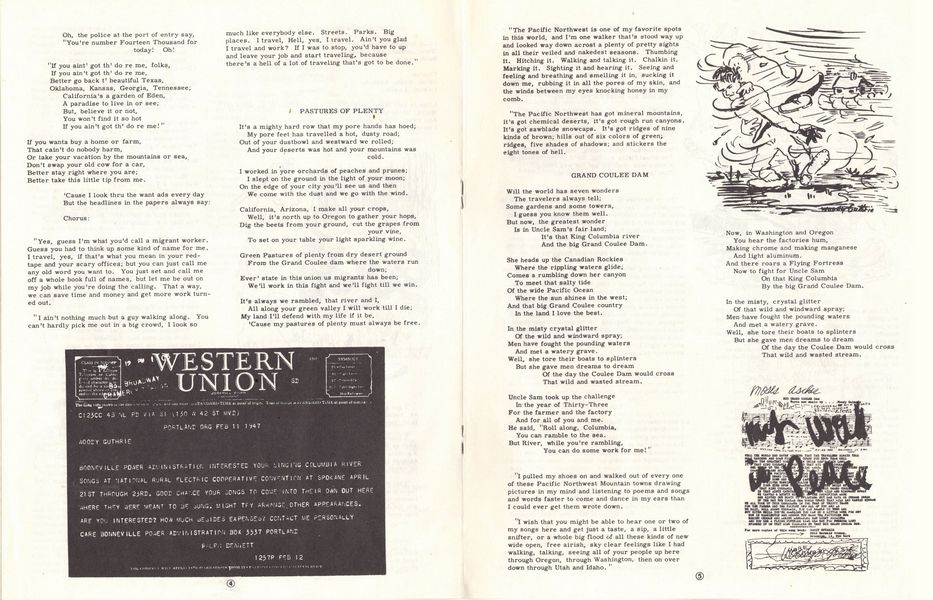
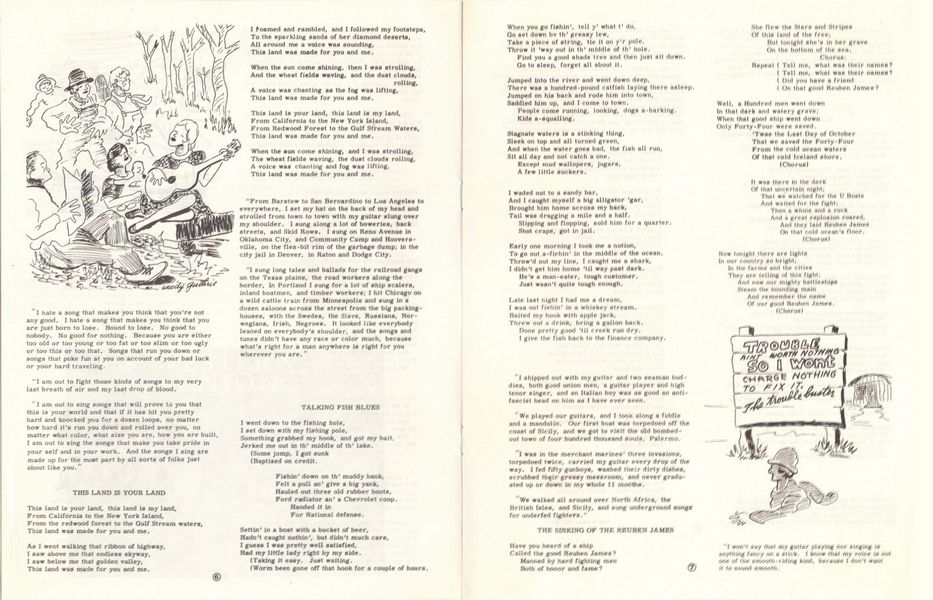
|
Sleeve Notes
His name is Woodrow Wilson Guthrie — a bit of information which may come as kind of a surprise. Most people don't know he's got any other name but just Woody.
He started out from Oklahoma, and he traveled all of the forty-eight states and most of the seven seas. And wherever he went he made music. He sang and he whistled, he hummed and he hooted, he played the guitar, the mouth harp, the mountain fiddle and the mandolin. If he couldn't lay his hands on a guitar, why he could just bang out a song with a couple of spoons. Or tap out a tune with his bare hands on a tin can.
Nobody does know just how many songs he made up.
A collector claims to have counted up over a thousand. But that would just be the ones that Woody took the trouble to write down. It wouldn't include the ones that slipped away in the dustry wind, the ones that vanished in the clank and rattle of a freight train crossing through the hills in the darkness.
All right, let's say he made up a thousand songs. Songs with love in them, songs with loneliness and sorrow in them, songs with a fierce and stubborn will to survive. Some of them, the chances are, you never heard. And some of them were played on évery radio station and juke box in the country. And some of them were hummed and whistled and passed along until they became part of the weave of the life of this land. And people would swear to you that they were old folk songs, drifted up through the hickory smoke of history.
Woody's songs have a way of taking hold, because they speak in the voice of the people that you can't beat down, you can't scare and you can't starve out. They are songs with the rhythm of work in them, with the echo of anger against poverty and meanness. Songs filled with the determination of a people to damn well endure.
If you are looking for a way to say what the best in America is, you won't find a purer statement than these songs.
Millard Lampell